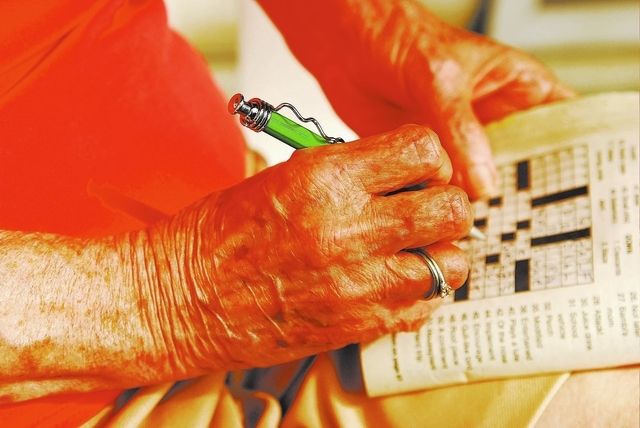
Newspapers and magazines often have a page containing “brain teasers,” word or picture puzzles geared to test your cognitive abilities. Although such things are meant mostly for entertainment, in our senior years we need to do more than that.
We know, for example, that aging can cause some loss of memory, and that body chemicals are needed to nourish our brain cells. We should aggressively protect the recall and memory abilities that we do have.
Nutritionally, eating fruits and vegetables high in antioxidants such as berries, avocados, apples, potatoes, oranges, pinto beans and other varieties, promote good mental health. Fish also is listed as “brain food.”
According to the Johns Hopkins University Medical School studies, seniors would do well to add a vitamin B-12 supplement to their regimen, or receive injections of the vitamin if recommended by their doctor.
Seniors should also work to control their blood pressure, say the health care professionals, to help lower the risk of stroke and memory loss.
Geriatric experts have developed a few tactics to help us along the way toward maintaining an active memory. To remember a name really focus on the name and face of the person, then pick a key visual characteristic that person has, such as big ears or red hair. The image will help to cement that person in your memory.
Another trick to the name game is to repeat that person’s name after being introduced. For example: “Nice to meet you, John,” and a few minutes later say, “John, what company do you work for?”
Remembering to do a certain task or activity works best when it’s associated with an image or event. For example, make brushing your teeth a reminder to take your medications and vitamins.
Visual reminders are a real memory booster. “Leave it where you can see it” is the advice of memory specialists. For example, if you want to remember to take a coat to the dry cleaners, put it in your footpath.
Some seniors use the tactic of reviewing their day at bedtime to trigger the information they want to remember. A bedside note pad is helpful, too.
And last, repetition is our friend, not to be done in rapid succession, but rather, repeat a name or task at 15-, 30- and 90-second intervals.
Chances are you will have it committed to memory.
Las Vegas resident Carolyn Schneider is the author of the book “Bing: On the Road to Elko” about her uncle Bing Crosby and his 15 years as a Nevada cattle rancher. She may be reached at 702-240-8570 or artist71635@msn.com to order the book.